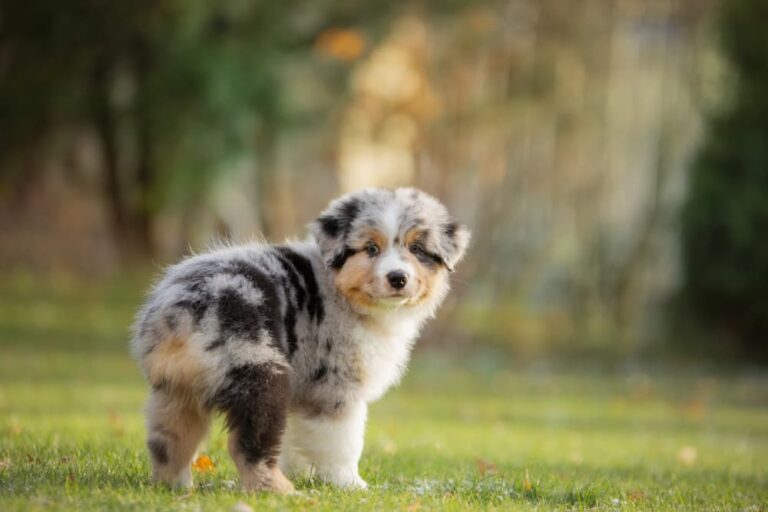As wienerwurst buff we sometimes have to dish out with unpleasant olfactory property coming from our beloved companions . Arguably the stinkiest scent that andiron grow comes from their anal gland .
If you ’ve ever seen yourdog scooting across your life room carpetor going to town on his rearward conclusion , betting odds are his anal retentive glands are irritated . Anal secreter issues are quite vulgar with studies reporting about 12 percent of dogs experiencing an issue during their lifetimes [ 1 ] .
You may be wondering what anal secretor in cad even are or what they do . You ’re not alone . Anal secretor are mysterious even to many veterinarians . This clause will give preferred parents an in astuteness penetration into anal retentive secretory organ , common outcome with them , symptom of issues , and treatment options .

Anal Glands In Dogs:What Are TheyAnd How Do They Work?
The anal glands are fluid - fill pouch that pose just inside the anus of all dogs at about the 4 and 8 o’clock perspective . The condition anal retentive gland is actually faulty and the correct terminus is anal sacs . hot dog do have dead on target anal secretor , which are small microscopical secretory glands that sit on the open of the anus . For this article ’s intent , however , the anal sacs will be referred to as the anal glands , as this is the full term pet parents are more familiar with .
The anal secretory organ are draw by apocrine and sebaceous secretor , that , together with bacteria , produce the stinky anal gland content . The anal secretory organ have little ducts ( openings ) on either side of the anus . ordinarily , when a dog poops , their poop will put pressure on the anal secretor and their table of contents will be expelled out of the canal along with stool .
Most species of carnivore have anal glands but their intention is ill understood . Some theorise that anal glands serve the purpose to convey or to mark territory .

Common Anal Gland ProblemsIn Dogs
Anal gland problems are common in dogs . In fact , a subject field from the UK showed that anal gland impactions were the third most diagnosed trouble by primary care veterinarians [ 2 ] .
Some anal retentive gland problems in dog admit :
anal retentive gland impactions fall out when the secreter do not express normally during defecation and become enlarged and clogged .

Infections of the anal gland , called anal sacculitis , may occur as a upshot of impingement of the anal glands . If anal retentive sacculitis is n’t treated apace or appropriately , this can conduct to an anal retentive gland abscess .
When an abscess develops , there will be significant swelling of the anal secreter , redness of the skin over the surface area and pregnant discomfort to the favorite . When the abscess becomes large enough , it will rupture causing an open wound to spring up in the cutis over the anal secretor that will debilitate blood and pus .
Less commonly , the anal retentive glands may develop a cancerous tumor , recognize as an apocrine gland anal sac glandular cancer . While this eccentric of tumor is rare , it is aggressive and propagate elsewhere in the body . This is why it is super important for your wiener to receive unconstipated wellness tab ups that admit rectal exams .

SymptomsOf Anal Gland Problems In Dogs
Signs that may indicate an anal gland military issue in dogs include :
Other things that can cause signs of rear terminal irritation include environmental and food allergic reaction , diarrhea , and fleas or flea allergies .
anal retentive gland issues are known to sham modest stock dogs more normally . Chihuahuas , Toy andMiniature Poodlesas well as Lhasa Apsos are thought to be at increased risk for anal gland disease [ 3 ] .
Anal GlandExpressionIn Dogs
Expression of the anal retentive secreter happen naturally when your heel poops . Dogs may also express their anal retentive secretory organ if they become startled or frighten . When your dog begins to show signaling of anal gland discomfort like scooting or licking , you should take her to your veterinarian to have them look into her secreter .
Your veterinarian will perform a rectal examination with a gloved and lubricate finger and , if the anal retentive glands feel exposit or the walls find inspissate , an anal secreter expression should be perform . This occurs by gently squeezing each secreter from the base to the top with the thumb and forefinger and milk out the anal retentive gland table of contents until they are completely empty . If the anal retentive secreter content are too thick , your vet may ingrain saline into the glands to assist in look .
Many groomers will offer anal secretor reflection or execute it routinely as part of your dearie ’s groom . Most vet recommend against having groomers or pet parents do anal gland locution . This is because most will do an external expression in which pressure level is employ only to the outside pelt over the anal glands . This will lead in an incomplete expression of the anal glands which can guide to a anatomy up of thick contents , which can direct to impaction .
How Do You Know If Your Dog Needs Their Glands Expressed?
Many veterinary dermatologist now believe that routine expression of the anal retentive glands when do without any signs of anal gland disease , will lead to excessive fluid building up in the anal retentive secretory organ causing them to enlarge more rapidly and necessitate even more frequent manifestation .
It is also thought that over - expression of the anal secretor can precede to inflammation and trauma of the anal sacs , making it more potential for impactions , infection , and abscessation to fall out .
For this reason , it is recommend only to have your dog ’s anal retentive glands show by a veterinarian when there are sign of anal retentive sac irritation such as scooting , anal drubbing , anal retentive red or intumescency , leak of contents , or anal retentive bleeding .
What To Do If Your Dog Has Anal Gland Problems
Besides having your weenie ’s anal gland expressed by your veterinary , there are some things that may help treat and prevent trouble with her anal retentive glands . Your veterinary may recommend flushing out the anal retentive secretory organ with an antiseptic answer and then instill an balm into the anal retentive glands that contains a steroid and an antibiotic . This will help to reduce firing and treat infection .
thing pet parents can do at home to assist concentrate anal retentive gland issues include adding afiber supplement to their dog’sdiet . Fiber will help to append bulk to the ordure and help the anal retentive glands express naturally . Ask your veterinarian if they would recommend this and how much to give your dog . Prescription high fiber diet are also useable .
Unfortunately , research into anal secretory organ disease is severely lacking so it is unknown how well fiber supplementation , or any other appurtenance or medication for that matter , will improve anal retentive secretor problems .
If your dog suffers from inveterate diarrhea and , as a issue , is not normally expressing her anal glands , it will be important to work with your vet to determine the cause of diarrhea so that it can be care for . For example , domestic dog with a mistrust food allergy should be put on a prescription hydrolyzed or new protein diet to see if this helps their symptom .
It is suspect that dogs that are overweight orobeseare at an increased risk of rise anal retentive gland disease . If your dog needs to shake off a few lbf. , work with your veterinarian to develop a dieting and exercise plan tohelp your frankfurter lose weight .
In some cases , frank that have frequent anal gland infections or abscesses that are not responsive to aesculapian management , surgical operation to polish off the anal retentive gland is advocate . This should be perform by a veterinarian experience in operation , as complications from this surgical process are common .